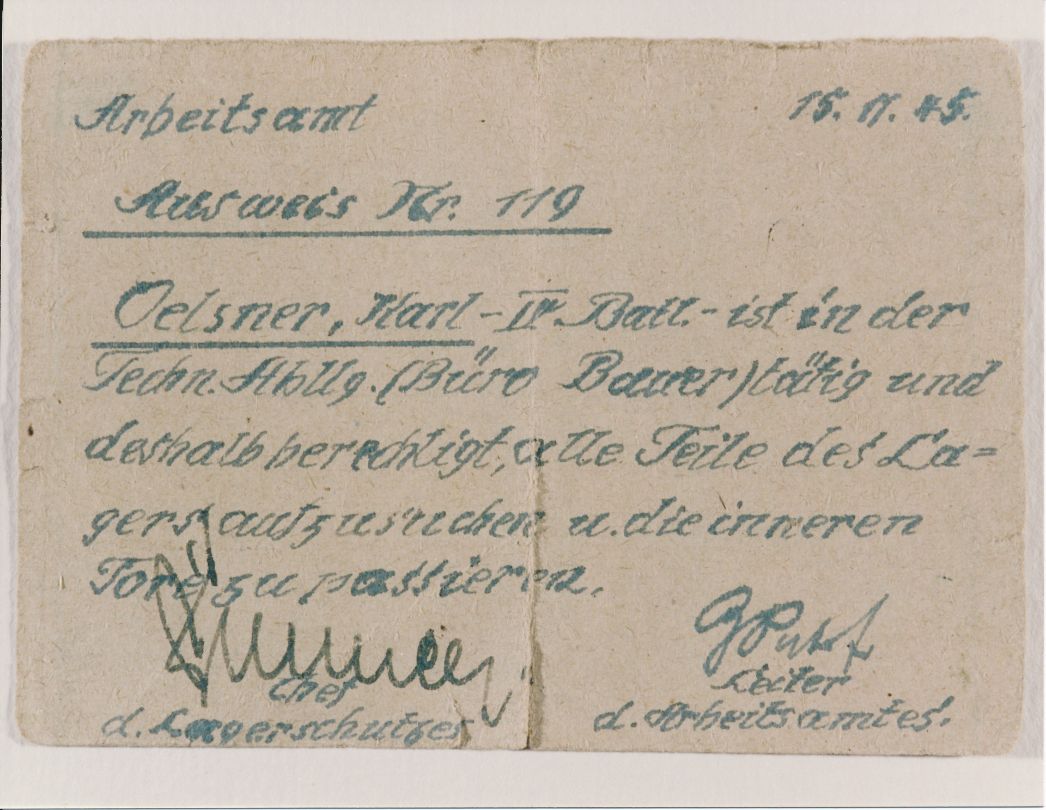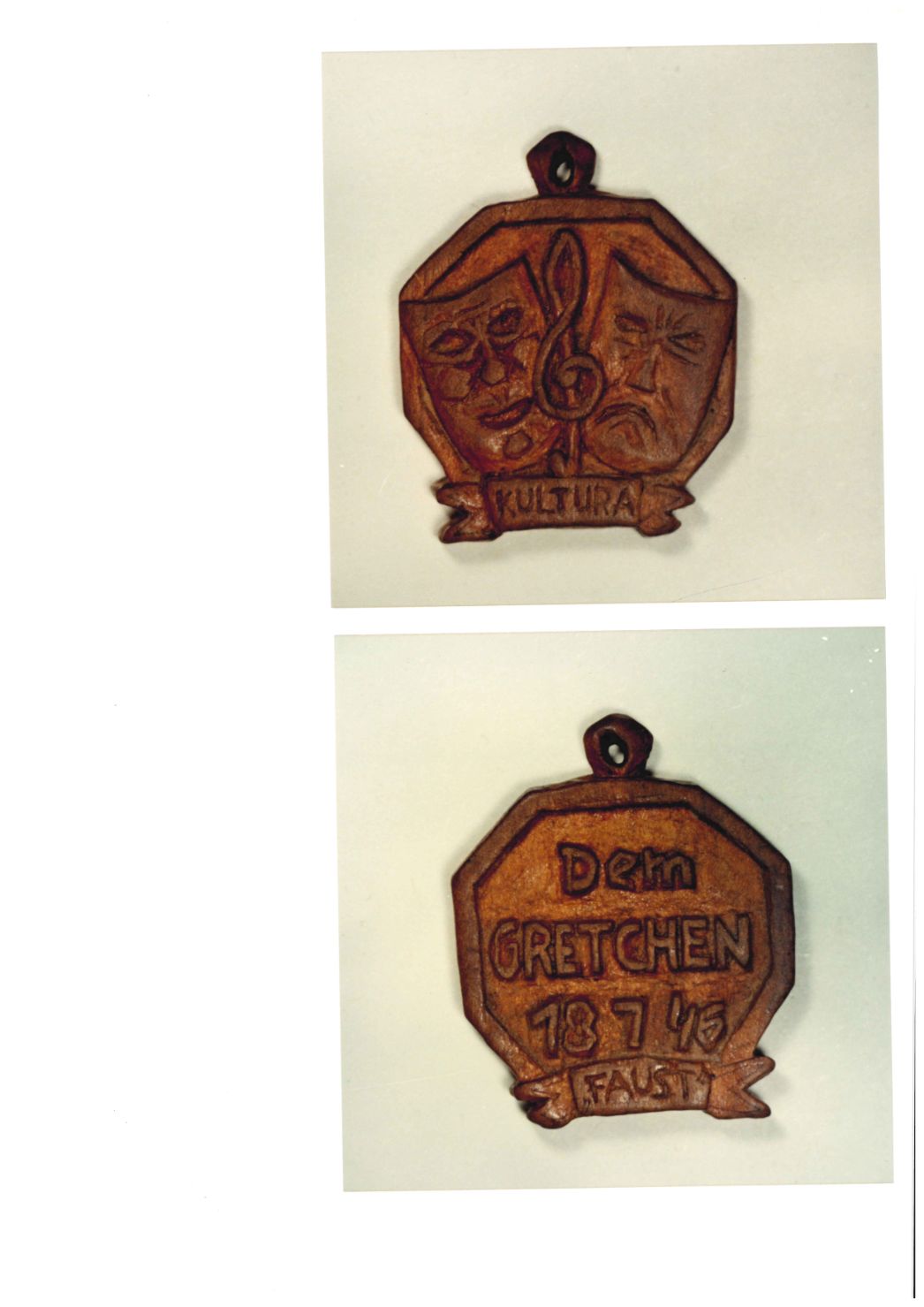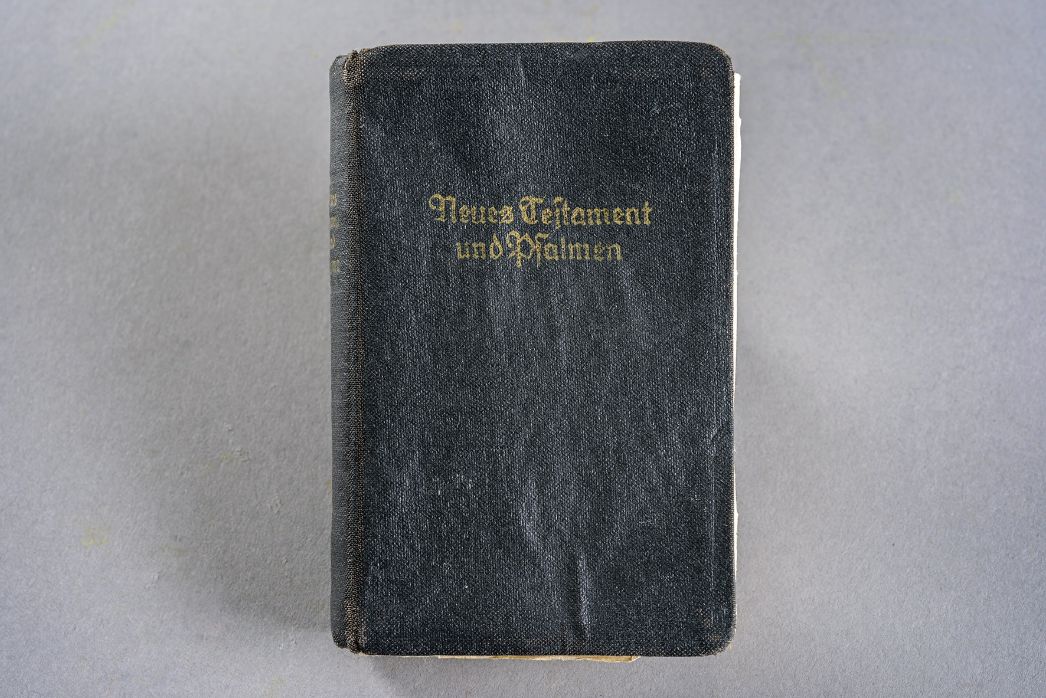Only a few Special Camp inmates worked in the camp's workshops, the bakery, or in the infirmary. For the rest, boredom, isolation, and uncertainty became torture.
During the establishment of the camp in 1945/1946, there were often opportunities to work. Later, once the camp was fully established, many prisoners were not allowed to do anything. Places in work details were therefore highly sought after. Prisoners were forbidden to play games or engage in cultural activities. The exceptions were chess and a cultural group that existed until December 1946, as well as lectures about special topics in the barracks. Some internees found solace in the Christian faith, and from 1947 onwards, occasional church services were permitted.

This labour card permitted the holder to move freely throughout the camp. Karl Oelsner was employed in the technical department working on the expansion of the camp.

„Dieses jahrelange Unbeschäftigt- oder Wenigbeschäftigtsein wirkte sich auf die einzelnen Häftlinge verschieden aus. Da es verboten war, sich mit irgendwelchen Spielen, Kartenspielen oder dergleichen, zu betätigen, stierten viele nur noch unentwegt vor sich hin. Andere liefen wie Tiere hinter Gittern am Stacheldraht hin und her. […] So stumpften sie durch die Langeweile immer mehr ab, sogar die später erlaubten Zeitungen erregten kein Interesse mehr. In kleinen Gruppen unterhielten sich mitunter einige über zum Teil unmögliche Dinge. Parolen wurden immer wieder weitergegeben. Diese betrafen meist eine bevorstehende Entlassung, das ersehnte Ziel jedes Einzelnen! Viele, die diesen Parolen glaubten, beschleunigten damit unbewusst ihr eigenes Ende. Sie verließen sich so sehr darauf, dass sie dann, wenn der genannte Termin vorbeigegangen war, ohne dass sich etwas ereignete, zusammenbrachen.“
Bericht von Georg Nitze über die Beschäftigungslosigkeit im Lager, 1951. Georg Nitze war von 1947 bis 1950 im Speziallager Buchenwald interniert.
(Gedenkstätte Buchenwald)

The ‘Kultura’ was a cultural group permitted by the Soviet camp administration that existed until December 1946. Among other things, the group performed plays. This wooden brooch was given to the actress who played Gretchen in Goethe's Faust as a thank-you gift from her fellow prisoners. The ‘Kultura’ was dissolved after five prisoners escaped in December 1946.

"The greatest attraction of our ‘Kultura’ was the performance of scenes from the first part of Goethe's ‘Faust,’ including the ‘Prologue in Heaven.’ Our Gretchen was a blonde girl from Arnstadt. She was completely absorbed in her role and acted so naturally and innocently that it was certainly not just the camp conditions that left a deep impression on my heart, one that I could never feel again in later performances, even at the National Theater in Weimar, years after my release."
Report by Hans Hammer, 1990.
(Buchenwald Memorial)
Despite the terrible conditions of her imprisonment, the actress playing “Gretchen” in Goethe's “Faust” performed her role so well that fellow prisoners still remembered it decades later. At the time, inmates carved her a wooden brooch as a souvenir.
Hans Hammer was interned in the Buchenwald special camp from 1945 to 1948.

The former Special Camp prisoner Reinhold Pietschmann handed down this edition of the New Testament. He was in the Buchenwald Special Camp from 1947 to 1950. The Soviet camp administration tolerated sermons and religious meetings from 1947 onwards. For the internees, this shared experience was a helpful way to get through the hard camp conditions.

